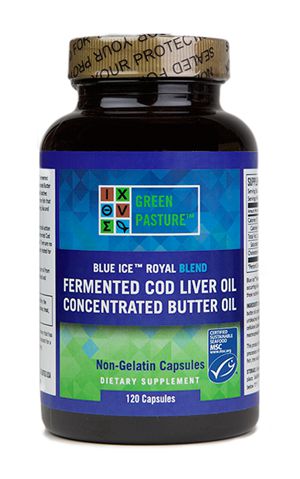|
http://www.westonaprice.org/modern-diseases/the-great-iodine-debate/
"Iodine is critical to human health. It forms the basis of thyroid hormones and plays many other roles in human biochemistry. While the thyroid gland contains the body’s highest concentration of iodine, the salivary glands, brain, cerebrospinal fluid, gastric mucosea, breasts, ovaries and a part of the eye also concentrate iodine. In the brain, iodine is found in the choroid plexus, the area on the ventricles of the brain where cerebrospinal fluid (CSF) is produced, and in the substantia nigra, an area associated with Parkinson’s disease. "Iodine is essential to normal growth and development. Iodine deficiency in utero and during growth can result in cretinism, a condition of severely stunted physical and mental growth due to prolonged nutritional deficiency of iodine or from untreated congenital deficiency of thyroid hormones (hypothyroidism). The condition is characterized by short stature, delayed bone maturation and puberty, infertility, neurological impairment and cognitive impairment ranging from mild to severe. Iodine deficiency also causes goiter, the gradual enlargement of the thyroid gland. Both conditions have led to public health campaigns of iodine administration in many countries. The addition of iodine compounds to table salt or water represents the first attempt to provide nutrient supplementation via “fortification” of common foods." While iodine is important, be VERY CAREFUL when supplementing with iodine. There is much debate about proper levels, along with unknown quantities already in a person's diet, such as from iodized salt. This can lead to possible thyroid conditions, such as Grave's disease or hyperthyroidism. Follow recommended levels. Read the following article to learn more about the research of Dr. Abraham and Dr. Lugol. - See more at: http://www.westonaprice.org/modern-diseases/the-great-iodine-debate/#sthash.AHb5WxQn.dpuf
0 Comments
Leave a Reply. |
Following Weston A. Price
|
|
Disclaimer:
Solar Powered Health (SPH) does NOT provide nutritional, medical or therapy advice nor engage in therapeutic treatments of any kind. SPH is about traditional homestead kitchen skills, whole-food based supplements, and nutritional information based on traditional principles. Any health related statements are for informational purposes only. Opinions expressed are those of SPH or author. Please see a health professional or practitioner for serious illness. Green Pasture ® products provide fat soluble vitamins, which are essential for proper mineral absorption into the body and many other functions. The FDA has not evaluated these statements. This health product is not intended to diagnose, treat, cure or prevent disease. Green Pasture ® cod liver oil and concentrated butter oil are meant to be combined with a well-rounded diet that also provides minerals like calcium, magnesium, potassium, sodium, chloride, phosphorous, zinc, copper, iron, and others, along with other vitamin A rich foods, such as butter, eggs and liver. Individual results can vary. SPH does not represent Green Pasture ® products or speak on their behalf. Prices subject to change without notice. As an Amazon Associate Solar Powered Health earns from qualifying purchases. |
WARNINGS:
1. FOLLOW RECOMMENDED DOSAGES. Cod liver oil in excess for long periods of time can be harmful due to high level of omega-3s. 2. WARNING FOR PREGNANCY AND VEGETARIANS: "Cod liver oil contains substantial levels of omega-3 EPA, which can cause numerous health problems, such as hemorrhaging during the birth process, if not balanced by arachidonic acid (AA), an omega-6 fatty acid found in liver, egg yolks and meat fats. Please do not add cod liver oil to a diet that is deficient in these important animal foods. It is important to follow our diet for pregnant mothers in its entirety, not just selected parts of it.” - Diet for Pregnant and Nursing Mothers 3. WARNING regarding Vitamin D3 drops.
https://chrismasterjohnphd.com/blog/2016/12/09/the-ultimate-vitamin-k2-resource/ |
"A joyful heart is good medicine, but a crushed spirit dries up the bones." - Prov 17:22
"But God chose what the world considers nonsense to put wise people to shame." 1 Cor 1:27
Copyright © Solar Powered Health 2019
See more in Terms and Conditions.
"But God chose what the world considers nonsense to put wise people to shame." 1 Cor 1:27
Copyright © Solar Powered Health 2019
See more in Terms and Conditions.
Icons credit www.flaticon.com eucalyp, freepik, smashicons and Awesome Fonts
Heromachine.com and Heroized.com
Heromachine.com and Heroized.com
www.solarpoweredhealth.com






 RSS Feed
RSS Feed




